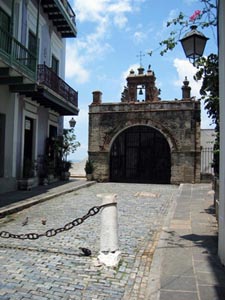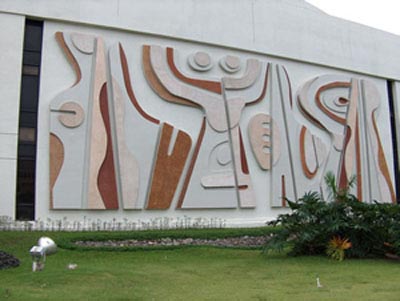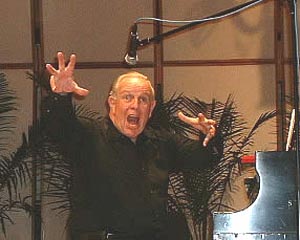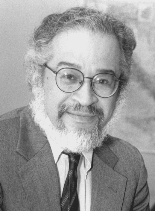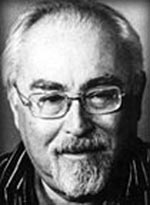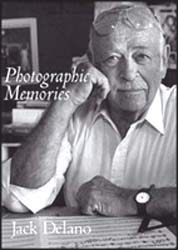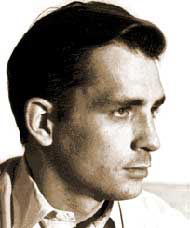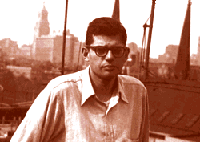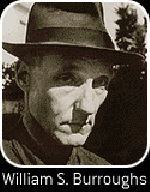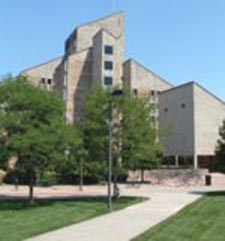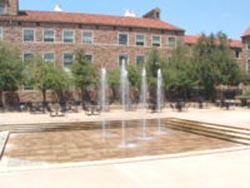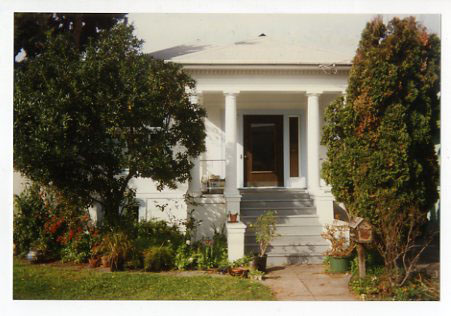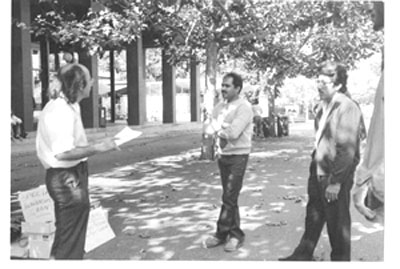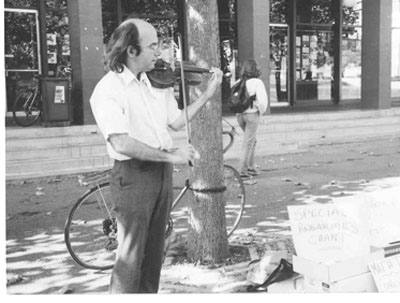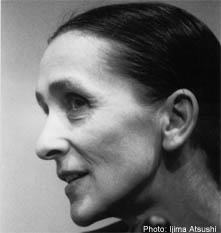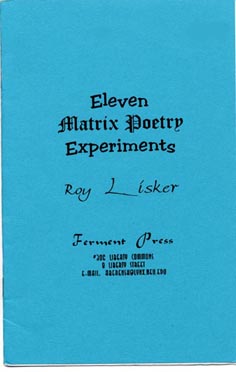Roaming California
1983-1987
Roy Lisker
1. San Juan, Puerto Rico:
The Casals Festival, June 1980
A good place to begin is with my trip to Puerto Rico in June of 1982, to attend and cover the Casals Music Festival. Pablo Casals emigrated to Puerto Rico after World War II. He founded the Casals Festival in San Juan in 1956. From the beginning its history has been troubled owing to the colonial relationship of Puerto Rico to the United States. Local composers and musicians of classical music have always felt shut out, and it was this phenomenon that I'd come to Puerto Rico to research.
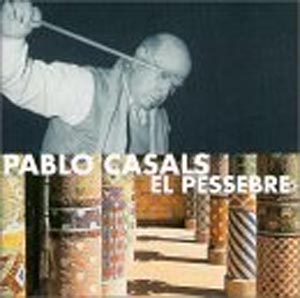
In May the administrators of the festival had sent me a press badge and tickets for all events and concerts. The friends I'd been staying with in New Paltz, New York, Jim and Peter Geiser, sent me off to Puerto Rico with a surprise donation of $200.
In my month in San Juan I interviewed every major composer: Hector Campos-Parsi, Rafael Laponte-Ledee, Amaury Veray, Francis Schwarz, Jack Delano, and Donald Thompson. I also interviewed union organizers, arts administrators, and members of the San Juan Symphony Orchestra. The complete report, published in 1982, can be read at: Puerto Rico, Music, Tourism and Politics
Puerto Rican composers
Counter clockwise from bottom left: Hector Campos-Parsi, Jack Delano, Rafael Aponte-LeDee, Francis Schwartz
Musicians, composers and faculty members at the University of Puerto Rico at Rio Piedras found ways to keep me going. The plane fare for the return trip was raised by tutoring students at the University of Puerto Rico in basic trigonometry. Other money came in from poetry readings, street music with the violin and subscriptions to my newsletter, "New University Weekly", launched in 1980 in Cambridge, Mass. Neely Bruce, professor of music at Wesleyan, covered the costs of printing and mailing the report to about 300 subscribers.
2. The great Beat Generation Writers Conference
Boulder, Colorado, July, 1983
I did not stay long on the East Coast. Soon I was headed out to the University of Colorado in Boulder to attend a beat generation conference, honoring the 25th Anniversary of the publication of "On The Road" by Jack Kerouac. The sole financing for this venture came from my parents, who gave me $80 for the Greyhound bus so that I wouldn't have to hitch-hike.
This conference was a giant reunion for all living Beat Generation writers, poets, musicians and political activists who'd known Jack Kerouac, including Allan Ginsberg, Peter Orlovsky, Gregory Corso, Ann Waldman, Diane DiPrima, Gary Snyder, Paul Krassner, Ken Kesey, William Burroughs and others, The panel discussions included several of the more charismatic clowns of political theater, such as Abby Hoffman, Timothy Leary and Gordon Liddy. Co-sponsor for the event was the Naropa Institute for Tibetan Buddhism, where Ginsberg had established a School of
Although I didn't write up a report on this event, I did win a prize for reciting the loudest poem at the conference. I also met new friends who would prove important over the following decade. On the way back to Philadelphia I stayed with Kenn Thomas, soon to become notorious as the editor of Steamshovel Press a flamboyant conspiracy magazine, with the motto "All conspiracy, no theory".
I sailed to Philadelphia from St. Louis on the wings of a cardboard sign with the single word "Philadelphia" written on it. The absurdity of it made people laugh, and sometimes stop to pick me up. For the one night outdoors I concealed myself on the hillside outside a MacDonalds in Indiana. Despite long waits the trip was accomplished with only four drivers.
3.Colorado University, summer 1983
In the summer of 1983 I returned to Boulder with the intention of remaining in the West for several years. I was expected in Eugene, Oregon in a month or so, to audition for the Eugene Philharmonic Orchestra
I already knew, although it took up most of the summer for me to acknowledge as much, that I didn't have the training to play in a professional symphony orchestra. Yet stronger considerations were also at work. During that summer I became so involved with the Mathematics and Physics communities in Boulder that there wouldn't have been time to practice and prepare even if I had been symphony orchestra material. However passionate I feel about music, science has always triumphed in the long run.
My arrival in Boulder in July of 1993 coincided with a series of mini-conferences in mathematics sponsored by the American Mathematical Society at Colorado University. I'd brought along reprints of papers written over the previous 2 years on topics of current interest in chaos and fractals. Copies were reproduced at copy shops around the town and handed out at the conferences. I would be meeting several of its delegates again when I reached Berkeley in September.
The International Congress of Mathematical Physicists
August 1983
After the conferences of the AMS ended I was uncertain whether to remain in Boulder or continue onto Eugene, Oregon. Within a few days however it was announced that the 7th International Congress for Mathematical Physics, which meets every 3 years, would be held at the newly opened Kittredge Conference Center a few blocks away from the campus. My sense that attendance at this conference was more important for my future than the audition in Eugene, which I was bound to fail in any case, was more than justified by events.
Having made the decision to participate in the congress, I worked out a strategy for attending it. Briefly stated I crashed the ICMP. Anyone present who attended my talk on the Einstein Centennial Symposium last year knows of my natural gift for crashing science conferences. The details are unimportant. Participation in the Congress had many beneficial consequences:
(1) I found myself well-positioned to effectively expose, protest and attempt to remedy the collusion of the physics community with the Arms Race. Most of the delegates in fact came from places like Sandia Labs, Los Alamos, Lawrence Livermore Labs, and other research installations dedicated to weapons production. As it happened the Congress was held in the same week as Hiroshima Day and Nagasaki Day, August 6th and 9th. Yet scarcely a delegate was aware of this fact. This was all the more objectionable in that there were large demonstrations in Boulder and Denver on both of these days, of which the physics community was either unaware or indifferent.
(2) Contacts were made with scientists at Colorado University, UC Berkeley, UC San Diego, UC Irvine, San Jose State University and the University of Southern California that would prove valuable in the coming decade.
(3) Finally, the seeds of ideas were planted there that would be turned into research projects when I reached Berkeley. These ideas continue to preoccupy me up to the present day.
Immediately after the opening ceremonies of the ICMP, I used my delegate's badge to set up a seminar on the "social responsibility of mathematical physicists". During my attendance at the ICMP it became very clear to me that no-one with a "legitimate" credential would have bothered to set up such a seminar. However, after my seminar was announced at a morning session I was approached by Joel Leibowitz, an émigré mathematician teaching at Rutgers. Together we set up a second seminar for the same evening, dedicated to the plight of refusniks and dissident scientists in the Soviet Union. The year was 1983, 6 years before Gorbachev.
Both seminars were very valuable, in terms of the information they contained and my insights into the scientific community. In order to write up my report I needed a newsletter. Sitting in a Greek restaurant over a Gyros sandwich for an hour or so, I came up with the name "Ferment". It has stuck for 25 years.
This report can be read on the Ferment Magazine website at: ICMP 1983.
San Francisco
At the beginning of September I was offered a lift to California by 3 college girls returning there from a summer at the Naropa Institute. My aunt Sophie, who lived in Los Angeles (she died about 20 years ago), was expecting me, but my friends were unable to take me further that San Francisco. This was all to the good, as Northern, not Southern California is my natural habitat. They let me off in front of the City Lights Bookstore, famous for its support of the Beat Generation poets and for the writings of its owner, Lawrence Ferlinghetti.
That night I rented a room in a hotel in Chinatown. For two days I played the violin on the streets of San Francisco, on Fisherman's Wharf and in the theater district.
On the third day I moved into the Post Hotel, a fleabag firetrap in the tenderloin district, right at the corner of Polk and Post. My two-night stay at the Post Hotel was written up in Ferment. Here are some excerpts:
"The Post Hotel provides a refuge for the down-and-out, the transient, the desperate and the abandoned. Speaking for the defense, the population of the Post Hotel is no more desperate, transient and abandoned than the neighborhood in which it stakes its claim at the intersection of Post and Polk.
There isn't anyone who doesn't look dangerous on these streets, jolly with prostitutes, cut-throats and bawdy houses, drunks and insolent street punks, trying to appear as tough as their imaginations will suggest to them; though to my mind they are already tough enough for most purposes.
Shielding the Post Hotel from the street is a grilled metal door. This door does not inspire confidence. One observes people walking in off the street at all times of the day and night. The inhabitants are in no danger however: no gangster with an ounce of professional pride would waste a minute sticking up a flop house of which no resident can boast of either possession or purse.
Behind the registration desk sits the night-clerk, Jamal. In the scale of humanity, Jamal is a radiate gem. Were it not for Jamal's inventive bookkeeping, everybody living at the Post would be "out" on the street. He is short, bony though stocky, with a thick, bushy Afro, large arms and hands and a high intelligence. On my first night at the Post I watched as Jamal paid for someone's rent out of his own pocket, doctored the books to allow someone else to stay on an extra night; advised yet another resident to pay a week in advance because the landlord intended to spring a surprise rent hike in a day or two; and accepted a week's rent two months overdue.
He also doctored the books so that I could stay an extra night. By the morning of the third day I'd become ashamed of exploiting his generosity and, crossing the river, returned to the more honorable expedience of embarrassing the academic community at the University of California.
A few words about the hotel's interior: The term "firetrap" is a pallid euphemism, and this was not the sort of place that tolerates euphemisms. None of the windows opened up into fire escapes, alleyways or sidewalks, but into narrow sealed-up trenches filled with beer cans and other trash.
The corridors were narrow wedges between a containing wall on one side and a long procession of bruised and damaged doors shedding flakes of yellow paint on the other. There were no keys. They would have been superfluous in any case, given that the locks didn't function. The hotel issued no towels, sheets, pillowcases or toilet paper. I slept rolled up in a cotton blanket on a bare broken-springed mattress. My stay was made memorable by a party among the 6 other occupants lasting until 2 in the morning. The bottle was provided by Peaches, a transsexual. Discretion forbade that one inquire too closely as to his/her means of acquiring it. I would not have shared in its cheer and comfort in any case. Survival dictates that one develop a keen instinct for knowing when to play the puritan."
Berkeley
Several students I'd met in Boulder put me up for a few days. Then I moved into the Berkeley Support Services Shelter on Harrison Street, down by the train tracks and near the Alameda District. Here is a brief description from Ferment:
"The air is good here, for Berkeley, and the sky clear. One takes in warehouses and trainyards, puffs of cloud tinged with orange, and the handful of rundown vehicles of the residents. There are also a few dogs running about, as pets are forbidden inside the Shelter.
The common room of the Shelter is a barren whitewashed room with two tables for dinner, one long the other short. The short table is covered with a cheesecloth. A third table in a corner holds the containers of food. Next to it is a counter that runs underneath a wooden panel that can be lifted up to pass food through from the kitchen. The check-in counter is of similar construction, with a door that admits one to a storage room, the only place in the Shelter where anything is safe. "
Over the winter of 1983 a way of life evolved that would carry me for the next decade:
(1) Living arrangements. On and off at the Shelter until December 1985, when a family of friends invited me to stay with them.
(2) Reciting original poetry and political monologues on the Berkeley campus and around California.
(3) Production of a series of booklets with subject matter ranging musicology to quantum physics, original fiction and poetry, under the heading of "Ferment Press". They were, and still are, sold on or near campuses.
(4) Violin playing at suitable locations around cities and towns.
(5) Writing, publishing, promoting and getting subscriptions for Ferment. Essays, poetry and short stories were also written that were not published in Ferment but appear in the booklets of Ferment Press.
(5) Attending seminars, lectures, and conferences around California.
(6) Original research in mathematics and mathematical-physics. These were delivered or handed out as reprints at conferences.
Taking each of these in turn:
(1) Conditions at the Shelter were very bad. It wasn't dangerous but the smell was physically nauseating, and the food unsanitary. Lights out was at 11 or 11:30, but one had to be indoors by 10. After a week or so there even sleeping in the parks or up around the Berkeley Hills was preferable. Usually it was possible to stay in cheap hotels or with friends among the students and faculty. For a month or so I moved into a shed on the grounds of a house being rented by graduate math students from Ireland. This had to be abandoned suddenly after the telephone lines were thrown down by a storm, and fell very close to the shed.
The Raffill house on Ordway Street, Berkeley
The next day I was invited by Harold Rafill to stay with him, his wife Shirley and son Tom in a house on Ordway Street. Harold was the secretary in the mathematics department in charge of assigning the teaching assistant and paper marking jobs to graduate students. His primary interest was in writing and literature; in fact he hated mathematics with a passion. After a decade or so of working in the Mathematics Department he had mixed feelings about mathematicians as well It was my good luck to find a literary person within the UC Berkeley mathematics department who was sympathetic to someone like myself, a writer with a mathematics background. It is highly unlikely that I could have found such a person in the English department. With notable exceptions English department personnel are quite hostile to writers. As for mathematicians, they've given up on them completely.
Harold is in the center, concealed behind the microphone.
I am on the right.
Harold quietly got me onto the payroll. For about two years I worked as a paper marker in the mathematics department. In my second term at this job I landed a job as a paper marker with the Physics Department as well. With a roof over my head provided by the Raffills and the money coming in from these jobs I could take a rest from living on the street, although I continued to recite poetry, monologues and political harangues on the campus. Some of the younger physics students received quite a shock when they encountered the person who'd graded their examination in the morning, dressed in a party costume and playing the violin on Sproul Plaza in the afternoon!
For a brief moment in 1986 the spirit of the old Berkeley was rekindled and the entire campus came alive with the divestment movement to force the University of California to divest in corporations doing business with South Africa. I lost no opportunity to recite political monologues around the campus during these demonstrations. Coincidentally Marty Bucher, one of the principal organizers of the divestment movement shared my office in the Physics Department on the top floor of Birge Hall. He now has tenure as a physics teacher and researcher in a branch of the French university system at Orsay, just outside of Paris.
Harold Raffill's courage in finding jobs for me (and others not listed officially as graduate students) got him into hot water with a new, and tyrannical department chairman, John Addison. There was no more work for me by the summer of 1987, by which time I was ready to return to the East Coast.
(2) Poetry and political editorials recited on Sproul Plaza.
Starting in 1981, I'd evolved a unique form of Sound Poetry, related to yet quite different from Rap. About a dozen sound poems had been written by the time I went to Boulder in 1982. In Berkeley I produced perhaps a dozen more. These are poems about nature, political poems, musical poems and narratives. A few years ago a selection of the best among these was recorded by Michael Arafeh at Coffeehouse Studios in Middletown, Connecticut, the costs being underwritten by John Basinger. There are about 1000 copies sitting in my room which have to be sold. Cuts from this CD "Language Compositions" can be sampled at CD Baby
3. Violin Playing
From the time of my arrival in Berkeley in September of 1983 the violin was used to pay for a bed at the Support Services Shelter and meals there and elsewhere. The income from Ferment subscriptions did help on occasion, but for the most part it was totally absorbed by the costs of production. The governing philosophy on subscription tours was that the money acquired from these tours would cover the costs of making them. Once back in Berkeley I would figure out some way to produce and mail Ferment. The return for my violin playing was small, perhaps $3 an hour. My memorized repertoire contained only a few pieces, including some beyond my technical competence.
Photograph courtesy of Alain Morvan
Issy-les-Moulineaux, Paris, France
Everything changed with the discovery of Music Minus One records and tapes. These are recordings of piano or orchestral backgrounds to accompany solo instruments. The use of tapes dubbed from Music Minus One records transformed a dismal street act into a profession capable of bringing in between $20 to $40 a day for perhaps 4 to 6 hours work. This is the moment to acknowledge a debt of gratitude to the Stuttgart Chamber Orchestra for their Music Minus One recordings of the Bach Brandenburg Concertos, notably #4 in G and #5 in D. A large tape player, called a "ghetto-blaster", now accompanied me on all my travels.
The effects of re-tooling were dramatic:
- A repertoire of perhaps a dozen pieces grew to about 100, and now included concerto and sonata movements, complete violin albums such as the one compiled by Gingold, pieces from every period, Baroque, Roccoco, Romantic and Modern, folk songs, opera songs and lieder.
- I eliminated those pieces which I played badly.
-
At the same time, by consistent practice I was able to increase my command over the instrument so that I could in fact play more advanced pieces, such as concertos by Bach, Mozart and even the first movements of the Beethoven and Mendelssohn concertos!
In addition to pieces for the violin, my repertoire now included pieces for flute, clarinet and even guitar, anything composed for a treble instrument with accompaniment.
- Finally I now had a travel vehicle which, over the next 8 years, functioned better than a car, taking me up and down California, around the Southwest, back to the East Coast, and around Western Europe from the Riviera to Sweden.
In the long run the profession becomes a dead end. There are good reasons why trained classical musicians don't play on street corners. The rigors of travel make it impossible to practice. My standards had also gone up, so that I could not longer tolerate really bad playing from myself. However this was unavoidable, given that I had to make a certain amount of money just to get through the day.
The income fluctuates wildly, being dependent on a host of parameters permanently beyond one's control: weather, working environment, reduced and stable traffic noise, sympathetic pedestrians, freedom from harassment by police or hecklers, lack of competition from rival buskers, including those who consider your location "their turf", the basic cost of materials and so on. The price of violin strings rose astronomically in that period, so that a broken string could spell disaster.
The profession has many positive aspects, one of which is the frequent occurence of exciting or picaresque adventures. One of these is presented on Ferment Magazine at Monaco
Another has to do with the way in which I ended up making an appearance on the TV detective series "Crazy Like A Fox".
It was in 1984. I was performing outdoors in San Francisco, a block or so away from the Montgomery Street Bart Station. Several trucks came by holding the personnel and equipment of a television production. The director, John Baskin noticed me and called the caravan to a halt. The next thing I knew I was being approached by the cast and crew of " Crazy Like A Fox" and offered to an easy $300 if I would consent to appear in the next episode.
The two detectives in this series are played by Jack Warden and John Rubinstein. The very soul of diplomacy, John Rubinstein, the son of Artur Rubinstein, commented that I "played well". My sense is that for the final product my playing was replaced by the dubbing of a professional.
In the episode in which I appear, Warden and Rubinstein, having solved a case, walk past me while I'm struggling with a phrase from the Bach Unaccompanied Sonata in E-major. Warden whips out his wallet, extracts a dollar, throws it in my case and walks away, grumbling, "Don't spend it all in one place. "
I've never seen the episode, but for the next few years, whether it was in San Francisco, St. Louis, Cincinnati, or Philadelphia, people would come up to me when they saw me playing outdoors and say "Aren't you the violinist from "Crazy Like A Fox"? In fact I've accumulated dozens of adventures of this sort, a number of which are depicted in the Ferment Press book: Vagabond Violin In spite of the many difficulties associated with the profession, the violin was employed successfully as a travel vehicle up until 1991. Since then I've been thoroughly burned out on the violin. At present my musical activity is concentrated on piano practice, which fills from 6 to 10 hours per week. I love it.
4. Ferment :Ferment was published in print form between 1983 and 2004, a period of 21 years. By 1987 the format had stabilized to a monthly of 24 to 30 pages. 200 issues were published in 17 volumes, a total of 3,600 pages. reduced as a pamphlet sized newsletter. Take a look at the Ferment Catalog 1983-2004
Ferment went On-Line in 2004. It was no longer possible to manufacture both articles for the newsletter and files for the website. Also, whereas the subscription list of Ferment had never exceeded more than a few hundred, as of March 2007, Ferment Magazine is receiving about 36,000 hits per month, along with a trickle of income (privileged information!)
Many of the subscriptions to Ferment were acquired on university campuses. My strategy was to visit departments dealing with subjects covered by the newsletter. Sometimes I walked down corridors knocking on doors. Whenever feasible I consulted a schedule of office hours to arrange for visits. Recommendations of one faculty member by another were always very helpful.
Generally, though far from always, I received a friendly reception. The number of subscriptions in proportion to the number of interviews was about 15%. I inevitably encountered faculty members who went out of their way to remind me, in a voice resonant with self-importance, that "soliciting" on a college campus is against the law. Either they imagined that I was a Fuller Brush salesman in disguise, or they were letting me on their opinion that all intellectual contributions coming onto the campus from the "outside world" had to be trash. On a few occasions, fortunately very rare, when the gulf between liberal pretension and narrow-minded reality was exceptionally great, I exploded in rage. No damage done.
There were a handful of schools in which the faculty of an entire department could be very rude. Two that come to mind are the Columbia University Mathematics Department and the Smith College campus. About this latter I have a story to recount that is well-nigh irresistible:
In the summer of 1986 I was back on the East Coast on my way to Europe. I visited the college town of Amherst, Massachusetts for two days. I ended up on the Smith College campus, canvassing for potential Ferment subscribers and customers for Ferment Press books. Bruce Hawkins of the Physics department, a true gentleman, had been a subscriber for a year or so. After visiting him I made the rounds of other departments.
In each of them someone got on the phone to campus security the moment I'd left, to complain that " Someone's going around selling books!" A pudgy, middle-aged cop caught up with me towards evening. What I was doing, he explained, with a peculiar look in his eye, was against campus regulations. I promised to stop. He continued to regard me strangely. Then he bent over,(no mean task given the size of his paunch), placed his mouth close to my ear and whispered: "What kinda books you got in that bag?"
Not to give an unfair impression of the man: once I showed him the contents of my books he apologized and commented, in a cynical tone: "You can ask for permission from the college, but I know those people, they won't allow it."
(5) Mathematics study and research.
Although my degree in mathematics was obtained from the University of Pennsylvania in 1963, I did no consistent research before my attendance at the Einstein Centennial Symposium in March of 1979. Participation in the ICMP provided another stimulus. I began doing serious work math and mathematical physics for the first time in my life while living in Berkeley in 1984. Somehow I managed to find time for both investigation and study (for the 20 year hiatus has rendered me permanently hors de combat in several vital areas of modern mathematics) between living at the homeless shelter, playing the violin on street corners, writing and belting out sound poetry, writing, publishing Ferment, and hitch-hiking around the Southwest and Europe.
At the age of 17 I decided that my primary concentration would be in Letters, what is strangely called "Creative Writing" at universities. This continues to be true, however around 1979 I began to regret that I had not at least kept up the study of mathematics so that I would know what people were doing. Mathematical talent is rare and should not be simply discarded. At the same time it was important for me to distance myself from this subject, both because writing also demands strenuous effort and attention, and to keep from being sucked back into a mathematics career by extraordinary social pressures.
This research activity has continued to grow. The most recent paper appearing on Ferment Magazine can be read at Non-Metrizable Time
Trip to Los Angeles, June, 1984
In May and June of 1984, 10 months after my arrival in California, I received a letter from my mother telling me that she, my father and two sisters would be staying for a week or so with my aunt in Los Angeles. I'd wanted to make a trip down the coast of California for some time and this was the opportunity I'd been looking for.
The trip to Los Angeles, with a side venture to San Diego, was made entirely by hitch-hiking. Returning to San Francisco and the Bay area I rode the Green Tortoise bus. This is the hippy bus company. In addition to transportation it provides rock music and marijuana, neither of which I have any use for, though it makes for a Long Day's Night, or Long Day's Journey into Night, depending on one's point of view.
After a day or so in Santa Cruz, my regular stop-over for trips south, I went to Monterey. It's a beautiful town, with lots of Spanish architecture, museums, and a Fisherman's Wharf where one can feed the walruses and sea-lions and dine in seafood restaurants. There was so much to see and do that I missed the deadline for boarding a van to the Shelter by 15 minutes.
I'd been told that there was a camping site a few miles up a steep mountain road. I headed in that direction around midnight. It was July, the sky was clear, the walk was long and I was tired. After half an hour or so of hiking I arranged my sleeping-bag and backpack in a meadow by a shoulder of the road and tried to sleep. Although it had been a warm day, the temperature had dropped rapidly after nightfall. Icy winds made it impossible to sleep for more than a few hours. After a few hours I made my way back into town and spent the rest of the night in a diner. Around 5 AM I walked across the street to a public park. I lay down on the grass and slept until 7.
Back out on the road again I was offered a ride by a woman on her way to the Esalen Institute, a psychiatric and physical therapy center. The car navigated hair-pin turns along the cliffs on Route 1, affording grand vistas of clouds, mountains and oceans. She dropped me off on the road just outside the Esalen Institute.
Only a narrow strip of turf separated me from the highway; at my back dropped a sheer cliff. Cars were few and far between, with no-one disposed to give me a lift. After 4 hours by the side of the road I started to doze off.
I was awakened by the blast of a truck horn. The driver was extremely friendly, perhaps too friendly: he offered me a snort of cocaine which I declined. He drove me to his home, up in the mountains above San Luis Obispo, where his wife prepared us a steak dinner. We sat around talking until 11 PM, and I was shown to a comfortable bed in the guest room.
My hosts woke me up at 6 the next morning and drove me to a convenient place on the road for a ride to San Luis Obispo. Once there I was given a lift that took me to the campus of the University of Santa Barbara.
Fortunately I still retained some sense of entitlement. My first stop was the Mathematics Department. I went to the departmental office and told a secretary that I was a mathematician stranded on the road. Could she recommend a faculty member who could put me up for a night or two? She looked me up and down and frowned: " Your best bet is with the man in the office down the hall on the right."
It was in this fashion that I met Dr. Roy Leipnik, destined to become a life-long friend. An applied mathematician noted for several important discoveries, he died in November, 2006. As a crowning achievement to a life in research, he developed methods, published shortly before his death, for solving the notoriously difficult Navier-Stokes equation.
He drove me out to his home 3 miles away on Hunting Hill Road. I met his wife, Joan, two of his sons, and a large Siberian Samoyed dog with bristling white fur that he'd picked while at a conference in Russia.
After that, whenever I passed through Santa Barbara I stayed with the Leipniks. Even as Santa Cruz was my regular stop-over for trips south, so the Leipniks became my regular stopover for travel back to the Bay area. Over the next 10 years I would be visiting them a dozen times or more. Through them I got to know Santa Barbara area fairly well, and may move out there some day.
By the time I reached Los Angeles I had only a few dollars remaining and no place to stay. I went to see Michel Lapidus, an acquaintance from the ICMP conference in Boulder, in the mathematics department at the University of Southern California. In a repeat performance of the scenario at UCSB, I was sent down the hall to the office of another faculty member, Fred Hinkernell. Fred and his wife took me out to dinner, put me up for the night and took me out to breakfast the next morning. In addition to discussing mathematics, they appreciated the fact that I was not at all hostile to their being born-again Christians, something that didn't go over well in USC Mathematics. I realized a long time ago that it is not the creed that validates the person, but the person who validates the creed.
The Los Angeles Art Olympics of 1984
During the time that I was talking with Michel, an event was happening across the street from USC that would have a strong impact on my stay in Los Angeles. This was the official inauguration of the Olympics Arts Festival, in association with the LA Olympics of 1984. A pair of statues set up as pillars on the gateway to the LA Memorial Coliseum was unveiled. The creation of the sculptor Robert Graham, they represent two nude athletes, male and female, each with carefully crafted genitalia and no heads.
For some reason these statues generated a storm of controversy in the Los Angeles papers. Critical letters fell into two categories: those from the camp that believes that all public displays of nudity are shocking and disgusting; and those that accused the Olympics Arts Festival of perpetuating the cliché that athletics are a matter of "all muscles and no brains"!
Saying good-bye to the Hinckernells the next morning I traveled to Venice Beach. Most of the day was spent reciting sound poetry, on the beach and adjacent to the Mall. It brought in enough money for dinner that night and the bus the next morning. A friendly, intelligent young man who'd come from Detroit to see if he could do something in the film industry, showed me an area on the beach where I could sleep without being assaulted or mugged.
Sitting up late in the Rose Cafe before going to the beach, I learned from the newspapers that an arts festival was being held in conjunction with the up-coming Olympics. As I wrote later in Ferment:
" The 1984 Los Angeles Olympics Arts Festival bills itself as the biggest in human history. Few nations besides our own would automatically assume that bigness is a virtue of arts festivals ... 1500 performing artists are to be shipped here over land and sea.... 145 performing groups will mount 500 productions over a period of 10 weeks ...The Festival will be spread over hundreds of square miles, in a territory stretching from Santa Barbara to San Diego.... Los Angeles will be hosting the largest exhibition of Impressionist paintings ever brought together in a single place..." and so on. Tremble, Walt Disney!
That evening I determined that I would cover as much of the Olympics Arts Festival as I could before my energy and enthusiasm ran out.
The next morning, using the four dollars remaining to me I boarded a series of buses that took me from Venice Beach to Westwood, where UCLA is located. Many of the events were being held on the UCLA campus, and I went around to all of the theater companies offering to do volunteer work. Just about every job was unionized. It occurred to me that, much as I'd done with the Casals Festival, I could pick up press credentials which carried the privilege of tickets to all the events.
Later that morning I contacted my aunt. My parents and sisters were just then staying with her in Beverly Hills. The family picked me up on the UCLA campus and I passed the day with them. We visited the Hearst Museum and went out to lunch. As there was no more room to stay at my aunt's place my father passed me $20. I quickly discovered that no accommodations were available for less than double that amount. Returning to UCLA I was able to find a student commune that agreed to take me in overnight.
The next day Peter Laderfoged, a colleague of my father's at UCLA, an experimental linguist doing research on the relationship of vocal chord configurations to speech patterns, invited me to stay with his family in Laurel Canyon for 3 nights.
I receive a press badge
That I was given press credentials was something of a miracle. It happened that the Accreditation Officer at the Hotel Bonaventure, Sherri Rosenfeld, was delighted by the off-beat character of Ferment, and welcomed the opportunity to take a stand against the bullying, self-importance and intellectual nullity of the assembled corporate media.
Pina Bausch and the Wuppertal Tanztheater
Pina Bausch
Even before acquiring them I'd gone out to Pasadena to interview members of Pina Bausch's Wuppertal Tanztheater, in residence at the Pasadena Civic Auditorium. That night I witnessed and reviewed their interpretation of Bela Bartok's opera "Bluebeard's Castle". Here is an excerpt from the review of the Ferment
" Male dancers, garbed as MAN, female dancers, garbed as WOMAN, race frenetically about the stage, stirring up strewn leaves like autumn gales, like cyclones sweeping across northern forests. They slam up against the whitened walls of the attic, or cellar, or ruined cathedral, or madhouse, abandoned whitewash factory or otherwise metaphor of post-war Germany.
They clamber up the walls to the window ledges, grasping the iron bars and jouncing like monkeys desperate to escape their gas-saturated cages. The brutal muck of Bartok's opera,"Bluebeard's Castle" snarls from a portable tape recorder. "
I was now the proud owner of a press badge, an oversized amber tablet dangled on a looped string over my neck, giving me admission to 500 productions by 145 theatre groups from around the world. At the same time I had no money to live on. After my third night at the Laderfogeds I also had no place to stay. To make money for meals and basic necessities I began selling booklets of poetry on the UCLA campus.
The violin and tape recorder had been stored in Berkeley, and, with the intention of traveling light, I'd neglected to bring more than a few copies of Ferment with me, and one book of book of 11 Matrix Poems that could be photocopied for $.025 and sold for a dollar. By selling 16 a day I netted about $12.00.
To learn more about this booklet and other works of poetry, go to the Ferment Press Catalogue After attending the Pina Bausch performance I left LA for two days and headed south, to the town of Encinitas. My host there was Bernie Marcus, a physics teacher at UC San Diego, another friend acquired at the ICMP in Boulder the past summer. Bernie and his wife put me up for the night and treated me well. It appeared however that the account I gave of traveling on the road made her very uneasy, since her husband had lived in a similar manner back in the 60's, before settling into the mediocrity of the academic lifestyle. They clearly felt more comfortable if I left the next morning.
Yet Bernie felt rather bad about this. He drove me to the coffee shop on the UCSD campus. As I stepped out of his car he passed me a case holding a viola and bow. Expressing some regret that the old days were no longer possible for him, he wanted to help me with the gift of an instrument that I could play on street corners. I played it over the day at various places on the UC San Diego campus, for pleasure not for money, and took it back with me to LA when I returned the next morning.
Around 6 PM that evening I returned to the café for dinner. Its managers agreed to store my backpack and viola overnight. Around 7:30 I left the café, bringing along only the sleeping bag, a few dollars and the press badge, to attend a guitar concert given by a young music student and her teachers. When it was over I set off wandering about the campus looking for a convenient place to pass the night. Unlike the situation in Monterey, the weather was warm and the wind was down.
However I soon ran into a pair of campus night patrol security guards. They wanted to know what I was doing on the campus. Remarkably, the big press badge worked its effect and made a strong impression on them: perhaps I was something more than just a tramp! One of them pointed to the north and said that if I kept walking for a few miles I would come to a beach. Off-campus, naturally.
Proceeding on my way I came to a redwood forest. Though still officially on campus grounds I entered it, arranged my sleeping bag and in a short time had fallen into the most delightful slumber of my entire 2-week journey.
Not all of the news was good: waking up the next morning I discovered that the sleeping bag was teeming with myriads of red ants!! It took me an hour to brush myself off and clean out the bag. That the ants were only out for a bit of malicious fun is proven by the fact that I'm able to write this account, 20 years later.
I returned to the coffee shop and took some breakfast. Picking up my things I returned to the road. Hitch-hiking was difficult, as the road went by the army encampment at Fort Bragg. After a few hours a soldier on leave picked me up and drove me all the way to Los Angeles.
Back on the UCLA campus once again I continue to raise money selling my book of matrix poems. Then I met a mathematician, a graduate student in number theory with some interesting ideas in transfinite arithmetic, who arranged for me to spend 2 nights in the lounge of the UCLA Mathematics Department.
Losing the press badge
We come now to the manner in which I lost the use of my press credential. By the time I returned to LA I was too tired out from 2 weeks on the road to be able to deal with a diet of 10 more weeks of theater-going, combined with an endless struggle against homelessness. I welcomed the opportunity to terminate my assignment as a journalist. Had I found a way to hang out for the full ten weeks I might have ended up as a full-time theater critic for some media organ, the certain death-sentence for my career in arts, letters and science!
On the morning following my first night in the Mathematics Department lounge, I went down to the UCLA campus to raise the daily $12 or so needed to finance my coverage of the Olympics Arts Festival. After a breakfast of coffee and a bagel I went to the Copy Center of UCLA, where I ran off 20 copies of the Matrix Poetry book. Around 10 o'clock I began making the rounds for potential customers.
The Royal Shakespeare Company was mounting a production of Shakespeare's Henry V, directed by Terry Hands, that I wanted to review. This was the day of the opening night. Two women and a man were seated at a table in back of the UCLA auditorium where the production was installed, stagecrew employees of the RSC. When I walked over to their table and tried to interest them in my collection of poetry, one of the women became very belligerent. Not only did she indicate that she wasn't interested, she launched into a heckling routine, ridiculing me, my work (which she hadn't seen), and anyone presuming to sell poetry outside of a bookstore.
Had it stopped there I would have walked away. The other woman was easily induced to join in the chorus of ridicule. Finally the man decided that, as their friend, he ought to participate in their display of rudeness.
In retrospect it appears likely that they were all drunk. There was a means at my disposal for getting back at them. Walking away a short distance, I pulled my press badge from a trouser pocket. Then I turned around and returned to their table. Coming up to them I said: "Do you see this badge? I'm an accredited journalist with the Olympics Arts Festival. I'll be covering this production of Henry V. You can just imagine what I'm going to write about you!" As I strode quickly away I could hear the prime heckler yelling at me.
She's picked up my name, either from the poetry collection or the badge. Later that day she called up the Media headquarters for the Festival and told an official there that I'd tried to attack her. That evening when I applied for tickets to Henry V, my badge was taken away from me. The story does not end there.
On the following morning I wrote a letter, which was delivered to Terry Hands. In it I described exactly what had happened. I explained that the incident would be written up in Ferment. This was followed by a description of the scope and history of my newsletters, beginning with New Universe Weekly produced in Cambridge, Massachusetts between 1980 and 1982. I truthfully stated that, at one time or another, their lists of subscribers have included Noam Chomsky, Howard Zinn, Thomas Kuhn, E.O. Wilson, John Harbison, Milton Babbitt, the Socialist Party candidate David McReynolds, chamber music groups in New York City, the American Music Center, Meet The Composer, the Widener Library at Harvard, the music department at the University of Puerto Rico, the Casals Festival, faculty members at various universities including Neely Bruce, Jon Barlow, Alvin Lucier and Richard Ohmann at Wesleyan, and quite a few scientists, writers, composers, and political figures of lesser renown! The letter was handed over to a staff member of the RSC for delivery to Terry Hands.
That evening a friend of mine, Lou Kauffman, a noted knot theorist, arrived in downtown LA to attend the annual meeting of the American Association for the Advancement of Science. He'd invited me to pass the night in his suite in the Hotel Bonaventure. Just before leaving Westwood and UCLA, I paid a final visit to the theater. From the information I picked up there I'd every reason to believe that the heckler, and possibly her friends, had been laid off. No doubt their behavior had involved them in more than one public relations disaster.
The morning following my visit with Lou, I traveled out to Hollywood, to a music store used by film industry musicians for buying and selling musical instruments. The viola in its case brought in about $100, enough with something to spare for a seat on a Green Tortoise bus on an all-night trip back to San Francisco, bathed in rock music and marijuana, with stopovers at the Esalen Institute and a bagel restaurant in Santa Cruz.
This brings me up to July 1984. The remaining 3 years in California unfolded along the lines established in the first year: street performances, writing and recitation of poetry, production of Ferment Press books, publishing Ferment, studying and doing research in mathematics and physics, and lots of travel. I returned to the East Coast for a few months in 1985, a trip covered in Ferment as "Travel and Discomfort in the USA".
Because of the stability of my situation with the Raffills and my regular job as a paper-marker, I was able to make several long trips. One of them, all expenses paid, was to Sarasota Florida, in response to an invitation to recite poetry at a gathering of friends.
For the summer of 1986 I went to France, and to Stockholm, Sweden to attend the 11th General Relativity and Gravitation Conference. Getting into this conference involved a bit of fancy foot-work and some shrewd maneuvering, but this time I was able to attend as an official delegate in good standing. The paper that I delivered, "On the algebraic representation of causation", can be read in two formats from: Longer Scientific Communications
A fanciful report on this conference can be read at: 11th GRG Conference
In the spring of 1987 I returned by bus to the Hudson Valley in New York State. On the way I attended a beatnik poetry conference in Lawrence, Kansas, a Rainbow Gathering in the Mary Twain National Park in Missouri, and a Fractals Conference at the University of Cincinnati directed by Benoit Mandelbrot. An account of this conference can be read at Mandelbrot's 5-Ring Fractal Circus
I might have covered the Rainbow Gathering as well, if I'd not been taken violently ill for a few weeks from the unsanitary water supply at the gathering. This is not a criticism of the concept of a Rainbow Gathering, but does address its downside.
From 1987 to 1988 I lived at Boughton Place in Highland, New York. Boughton Place, a human services center, was founded and managed by Clare Danielsson until her death last month: another good friend and working associate has passed out of my life. From April 1988 to April 1989 I lived in France. In 1991 I went out to the Southwest again and lived in Boulder and Denver for about a year. In 1993 I moved to Cambridge, Massachusetts. Finally in 1994 I came to Middletown, which has been my base of operations ever since.
